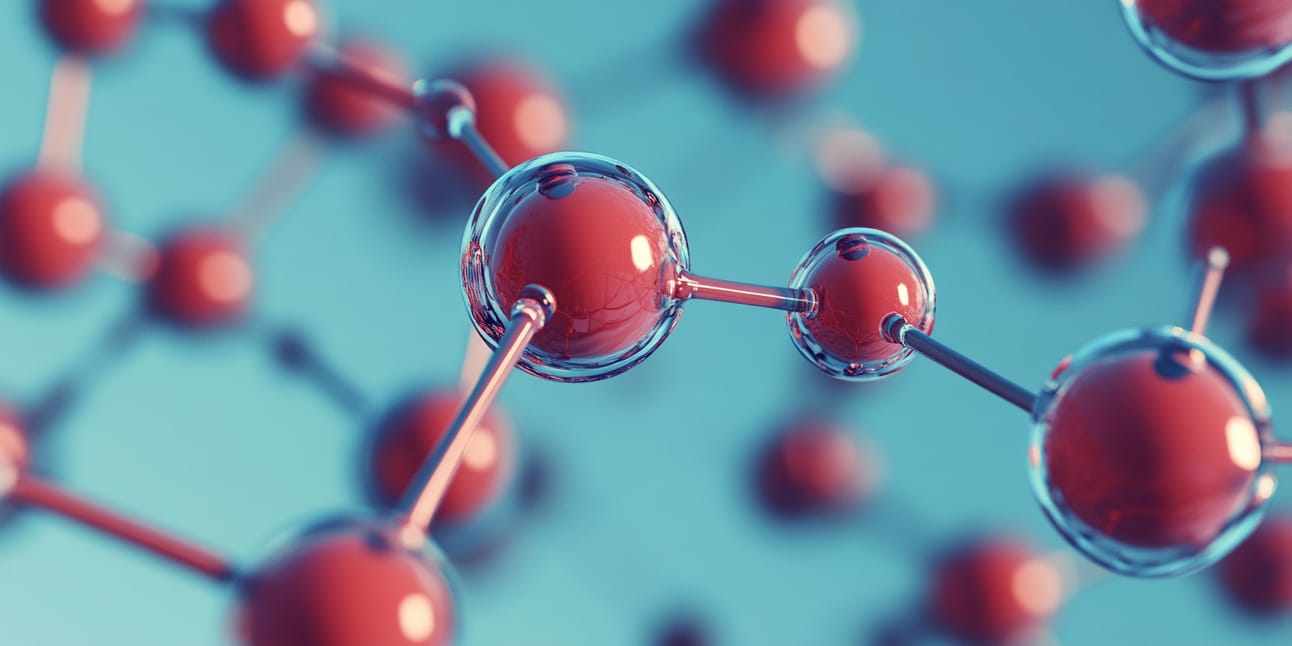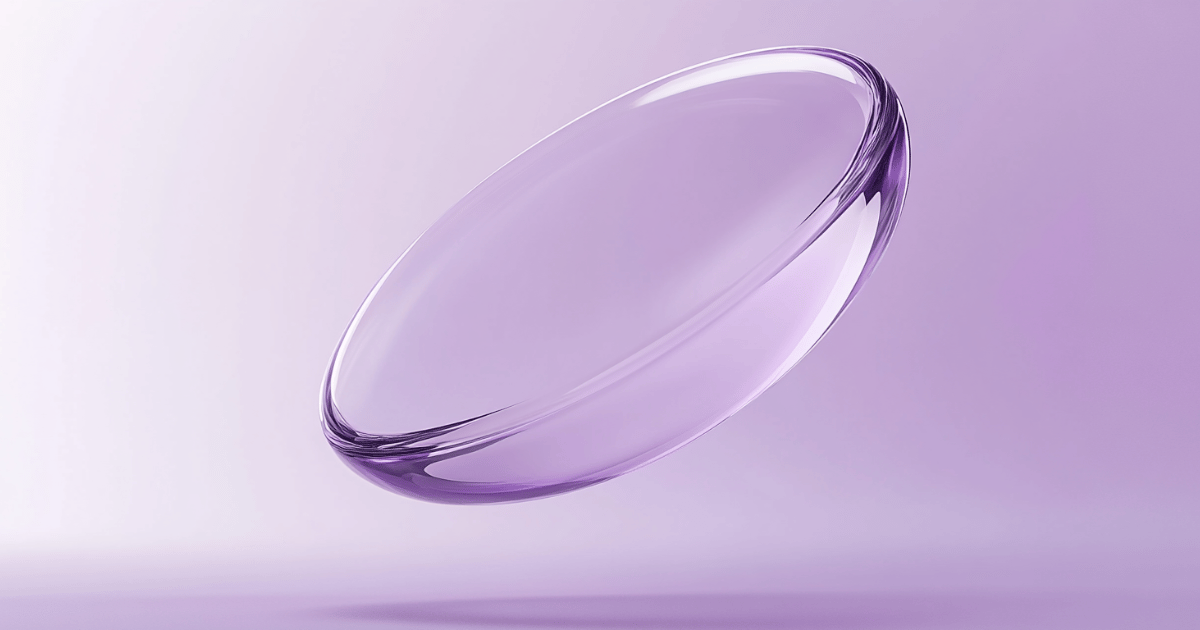
Morning, long-lifers. Here’s what’s new:
Tiny plastics may be messing with your metabolism — and not in a “cutting carbs” kind of way.
Turns out your takeout might come with a free side of liver damage and a sprinkle of glucose intolerance.
Don’t keep longer. a secret—share it with your friends!
This week in longevity:
🥤 This ketone just boosted mouse lifespan 21%
🧠 Gut microbe ages blood vessels faster
🧬 New aging clock beats previous DNA tests
🏋️ Moderate exercise slows brain aging best
👁️ Smart lens tracks eye pressure during sleep
Plus, more longevity breakthroughs.
Read time: 5 minutes
THIS WEEK IN LONGEVITY
🧃 Tiny plastics may be messing with your metabolism

Source: Midjourney | longer.
Tiny plastic particles in your food might be doing more than cluttering your recycling bin—they could be quietly disrupting your blood sugar and liver health. In a recent study, mice fed nanoplastics developed early signs of glucose intolerance and liver damage. It’s not time to panic—but maybe time to rethink that takeout container.
What to know:
Plastics in your system: Researchers tested polystyrene (the plastic in many food wrappers and takeout boxes) and found it may disrupt metabolism when ingested regularly.
Early signs of disease: Mice exposed to these plastics showed glucose intolerance (a warning sign for diabetes) and elevated liver enzymes.
Gut impact too: The plastic-fed mice also developed “leaky gut” (weakened intestinal lining), allowing harmful bacteria into their bloodstream.
Not just animal news: Though the study was on mice, nanoplastics have already been found in human blood, lungs, and even placentas.
Preliminary but worrisome: The study isn’t peer-reviewed yet, but it adds weight to growing concerns about daily plastic exposure through food and drink.
Why it’s important: Your body might not treat that invisible plastic as harmless. Over time, exposure could quietly tax your liver, affect how you handle sugar, and inflame your gut—none of which are great for long-term health. Turns out, food labels aren’t the only thing worth reading—packaging matters too.
MADE POSSIBLE BY VIOME
🧬 Your body’s not guessing — so why are your supplements?

Source: Viome
Viome’s Full Body Intelligence Test looks at your microbiome, cellular health, and biological age to show what’s really going on inside.
Then it builds personalized supplements based on your results — only what your body needs, nothing extra.
Better sleep. Better energy. Better digestion.
Trusted by 500,000+ and shipped straight to your door.
🥤 This ketone just boosted mouse lifespan by 21%

Source: Midjourney | longer.
A supplement version of β-hydroxybutyrate (3HB)—a natural ketone your body produces during fasting—just helped mice live longer and stay healthier with age. Mice given 3HB starting in mid-life lived 21% longer on average, showing changes similar to what we’ve seen from calorie restriction and rapamycin. Not bad for a molecule your body already makes when it skips breakfast.
What to know:
A natural longevity molecule: 3HB is a ketone (a type of energy molecule) your body makes during fasting, calorie restriction, or ketogenic diets.
Extended lifespan in mice: Supplementing midlife mice with 3HB boosted median lifespan by 21%—comparable to rapamycin, one of the most powerful anti-aging compounds in mice.
Healthier aging too: Mice not only lived longer, but had fewer signs of aging in tissues and organs, suggesting better quality of life.
How it works: 3HB appeared to delay cellular senescence (cells aging and stopping function) and changed metabolism to produce more beneficial compounds like trigonelline and isoguvacine.
Cross-species effects: The researchers also found life-extension effects in yeast cells and protective effects in other cell models, hinting at broad potential.
Why it’s important: This isn’t just about squeezing out a few extra months—it’s about living those months better. If these effects hold in humans, 3HB could become part of a real longevity toolkit, especially for those already experimenting with fasting or keto. Apparently, your cells appreciate a little metabolic time-out.
💡 Want to break down a research article? Try this prompt in ChatGPT:
“Explain this in plain language. Avoid science terms. Keep it under 5 sentences. Then give 5 takeaways based only on this summary—no extra info or guesses: [Paste the article here]”
MONEY MOVES IN LONGEVITY
💰 Parallel Bio raises $21M to replace animal testing with immune organoids—mouse traps out, human trials in.
💰 Longevity Wellness Hub lands $4M to expand quantum wellness tech across the Gulf—good vibes go regional.
💰 Baroda BNP Paribas launches health and wellness fund in India—betting on aging, illness, and rising care demand.
IN THE SPOTLIGHT

Source: Midjourney | longer.
1. Gut microbes drive blood vessel aging
Researchers found a gut microbe makes PAA, a compound that stresses cells and speeds up blood vessel aging. Acetate, a healthy fat made by good gut bugs, helped protect cells. Fiber-loving microbes might be your best defense against cardiovascular aging — keep them well-fed.
2. New aging clock tracks real-world function
Researchers built a DNA-based test that predicts declines in memory, energy, strength, mood, and senses better than earlier biological age clocks. It’s like a report card for how your body and brain are really aging — not just your birthdate.
3. Too little or too much exercise can age your brain
A large UK study found brain aging slowed most in people with moderate activity levels; both low and high extremes sped it up. Turns out, your brain likes a Goldilocks workout — not too little, not too much, just right.
THE NEXT BIG THING
The First Longevity Beauty Lab?

Source: L’ORÉAL
A beauty giant just revealed new tech—not for looks, but for slowing biological aging.
At VivaTech 2025, L’Oréal debuted its Longevity Science platform: AI skin scans, cellular biomarkers, and at-home devices designed to extend your skin’s health span. It’s part of a bigger shift from surface-level fixes to root-cause prevention.
Future of skincare or next-gen marketing?
WHAT ELSE YOU SHOULD KNOW THIS WEEK

Source: Midjourney | longer.
📊 Clinic Code: A new white paper urges longevity clinics to adopt shared standards, AI tools, and outcome tracking. Published by the International Institute of Longevity, it marks a shift to scientific rigor.
🧪 Cancer Catcher: Singapore’s A*STAR scientists built “Fragle,” an AI tool that finds the tiniest cancer traces in blood using DNA fragment patterns. It’s 20× cheaper than current tests and spots relapse early.
👁️ Night Watch: A smart contact lens from China tracks eye pressure and movement—even while you sleep. With 97% accuracy, it catches vision-threatening spikes that current tools miss overnight.
🧬 CRISPR Boost: A new study shows gene editing with CRISPR can trigger cell aging (senescence) and inflammation, weakening engineered cell therapies. Adding anti-inflammatory drugs like anakinra slashed these side effects without reducing editing power.
💪 Lipid Load: New research links excess fat inside muscle cells to age-related weakness and metabolic decline. Targeting these intramyocellular lipids could boost strength and flexibility in aging muscles.
WHAT WE’RE BOOKMARKING
📱 Social
🎧 Podcasts
📰 Articles
⚙️ Tools to Try
Thanks for reading.
What did you think of this week’s newsletter?
See you in the next issue.




